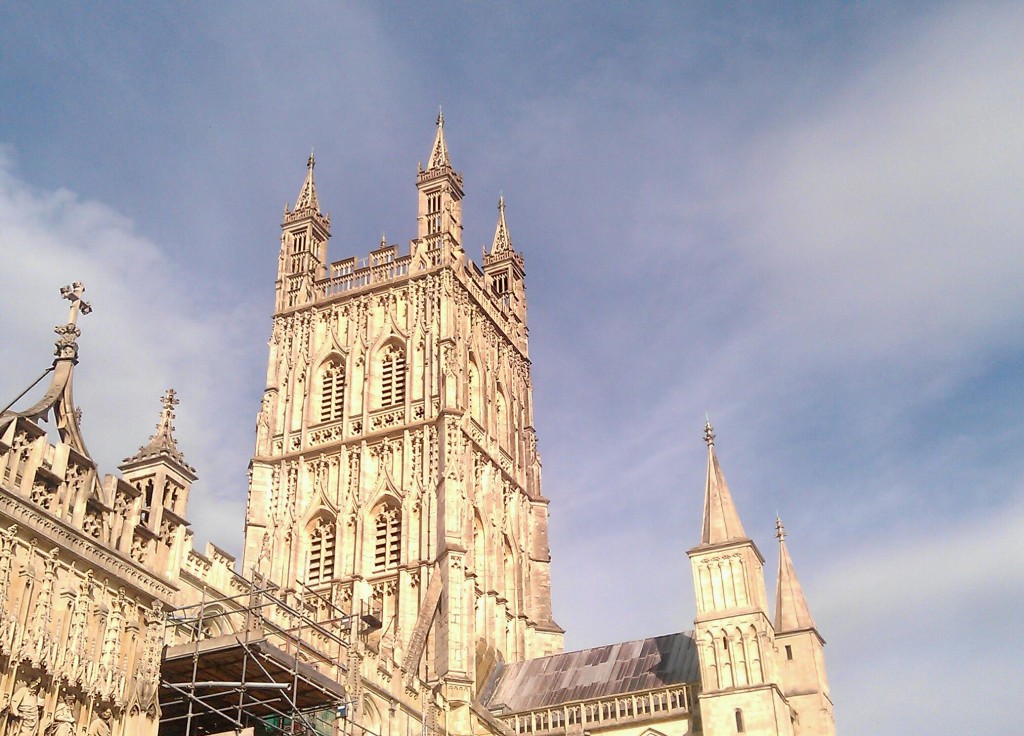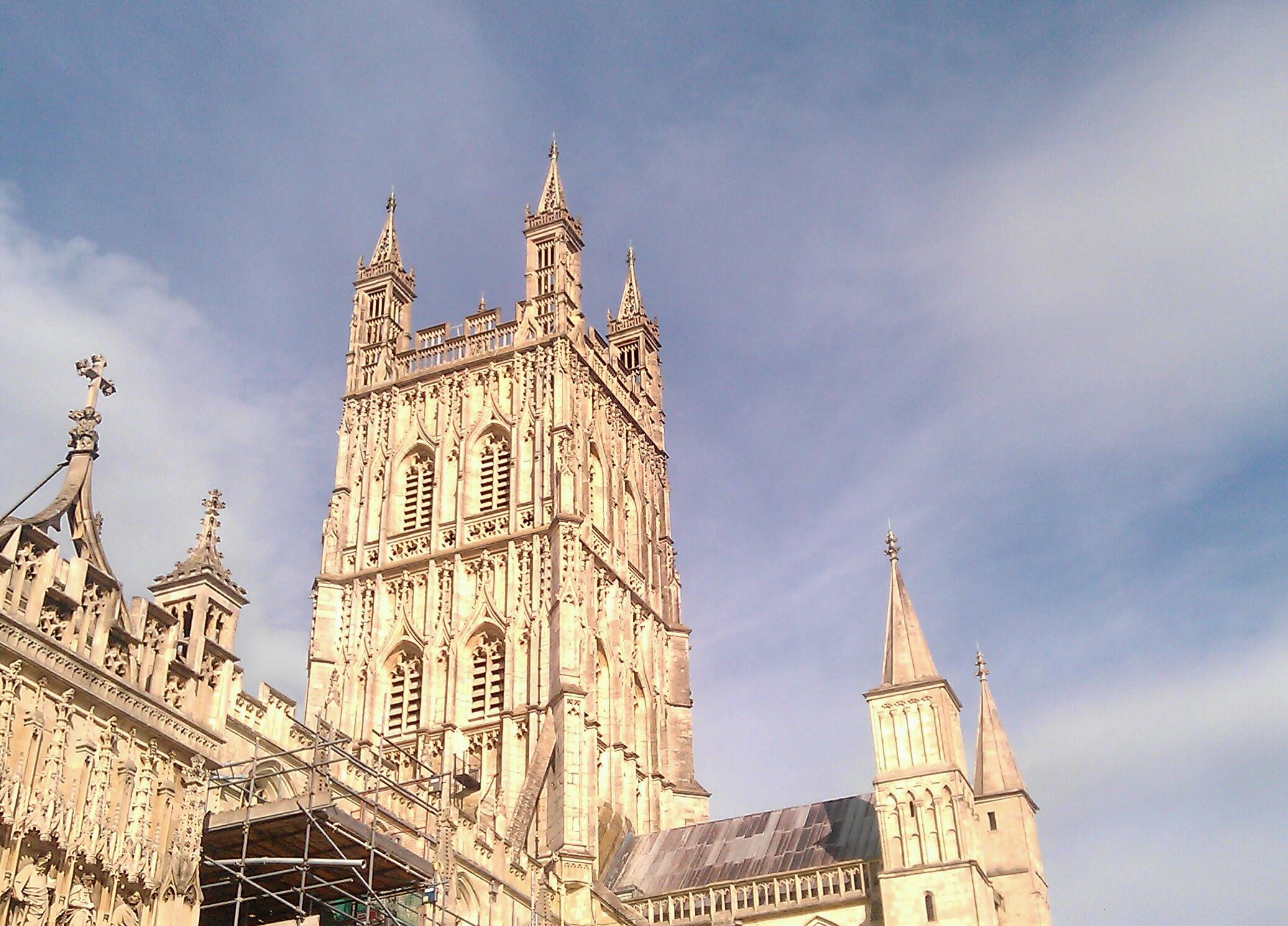Those of you who regularly worship in cathedrals will probably be welcoming back your full-time choirs this weekend; children, lay-clerks and choral scholars all well-rested and raring to go. But who sings while they’re away? During the holidays, British cathedrals are invaded by an army of school choirs, college choirs, touring choirs from overseas, and ad hoc groups like the one I sing with. We call ourselves Voces Usuales – as so often the origins of the name are long forgotten, but I think it had something to do with the “usual suspects” once being rounded up to sing at someone’s wedding, and a play on the Catholic “liber usuales”. In our case, we get together for a couple of weekends a year, at a cathedral somewhere, to rehearse and sing services. Many of us sang in St Chad’s college choir at Durham which means swathes of palatinate all over our hoods and a fondness for singing old college favourites such as Darke in F (“effin Darke”) and Palestrina’s Sicut Cervus.
We’re always very touched by the welcome and the thanks that we get from the staff and clergy wherever we visit; for us it’s a great privilege to be able sing in these wonderful cathedrals, and I always feel that we owe the greater thanks. For me, one of the pleasures beyond the intense music-making and the fun of singing with friends is the opportunity to spend a long time in whichever cathedral we’re visiting, exploring the nooks and crannies in between rehearsals and services, particularly during the quiet time on a Sunday morning. I also get a secret kick of being able to swan around a cathedral feeling as if I belong there.
Everywhere has its little quirks, and one of the challenges of being a visiting choir is to learn quickly how Things are Done in each place, the most important of which is the procession. Explanations vary from the long blow-by-blow sat-nav account of every turning, to the brief “just follow the crucifer” but the most helpful vergers are those who keep it succinct whilst allowing a quick walk-through, which is always handy because then you get to see where there are steps or uneven floors, and it saves the huge mental task of figuring out how to line up. Things can go wrong, and it’s always a bit nerve-wracking if you’re the person leading; most of the time the worst that happens is a bit of hesitation and frantic signalling, but on one occasion a precentor forgot to tell us that Saturday and Sunday evensongs had totally different processions and there was chaos.
Unless we have a particularly demanding schedule, we don’t rehearse before the weekend, but our efficient organiser Matt sends out music lists well in advance so we can do homework. How the music is agreed with the cathedrals is part of Matt’s dark art of negotiation; some places only allow published music, others are more flexible and so we’ve been able to sing a couple of pieces by our own members, most recently a fine set of preces and responses by Anthony Zerillo. Matt is also responsible for bookings, and he has achieved great things there; we’ve been to Lincoln, Winchester, Leicester, Canterbury, St Paul’s Cathedral, Southwell, Ripon, Liverpool, St Edmundsbury and most recently Gloucester, and we have bookings for the next few years for St Albans, Hereford, Exeter Guildford and York Minster.
These days I don’t sing regularly in a church choir, so these weekends are a wonderful opportunity for me to immerse myself in the twin beauties of sacred choral music and of the Anglican liturgy. A full BCP Sunday afternoon choral evensong, with a full-bodied Mag and Nunc, some Tudor responses, a nice anthem and some mellow evening hymns – that’s probably my idea of what heaven should be like and I’m honoured that I have the opportunity now and then to sing in these glorious services.









